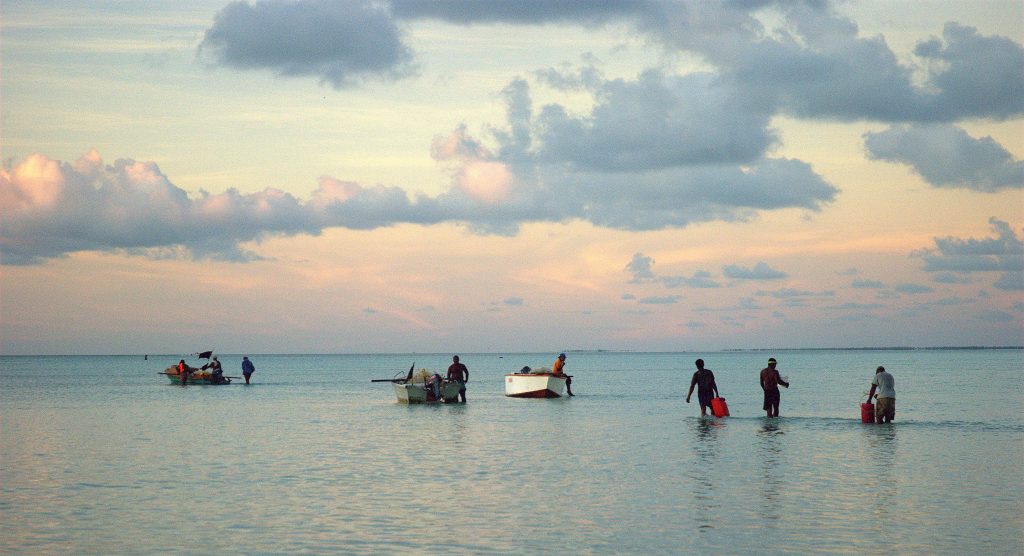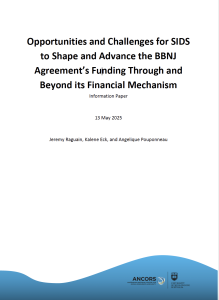BBNJ - Ratification and Implementation
Strengthening Ocean Governance and Equitable Resource Sharing
BBNJ Ratification and implementation
In 2023, the international community adopted the agreement for the conservation and sustainable use of marine biodiversity beyond national jurisdiction (hereinafter the BBNJ Treaty). The BBNJ Treaty sets out new regulations and obligations for how marine biodiversity is to be protected and used and how benefits arising from marine genetic resources are to be shared amongst all. The new treaty enables the establishment of area-based management tools, outlines the process of environmental impact assessments, ensures fair and equitable access and benefit sharing of marine genetic resources and enables capacity building and the transfer of marine technology. This new agreement brings innovative ocean equity aspects into existing ocean governance, including a more influential role of Indigenous Peoples and Local Communities in designing ocean governance and concrete opportunities for capacity building and marine technology transfer for developing countries.
One of the key parties in shaping the new BBNJ Treaty have been Small Island Developing States (SIDS), who have been strong proponents for an ambitious treaty to implement conservation measures and achieve equitable outcomes. There is a sense of urgency to have this new instrument enter into force given the global biodiversity and climate change-related crises. SIDS, comprising 39 states, are crucial to achieving rapid entry into force and must maintain a leadership role in the BBNJ process to enable effective and equitable implementation of the treaty.
The Ocean Equity Research program studies multi-jurisdictional coherence between existing instruments of the ocean governance framework and BBNJ’s new role in it. Furthermore, this research programme provides support to SIDS and developing states to ensure equitable and effective conservation of biodiversity in marine areas beyond national jurisdiction. Combining expertise from Fisheries, Deep-sea Mining, Shipping, and Biodiversity, the Ocean Equity Research team provide insights for interaction, cooperation, and support to contribute to a holistic and equitable ocean governance in areas beyond national jurisdiction.

Recent Publications

Financing and Institutional Pathways for Effective Finance of Capacity-Building and Transfer of Marine Technology for BBNJ
This multi-regional webinar explores how we design and finance the institutional architecture necessary to deliver on Capacity-Building and Technology Transfer (CBTMT) package of the BBNJ agreement.

Opportunities and Challenges for SIDS to Shape and Advance the BBNJ Agreement’s Funding Through and Beyond its Financial Mechanism (Information Paper)
The BBNJ Agreement’s financial mechanism, including the Special Fund, is vital for supporting implementation, especially in developing countries and SIDS. However, key challenges remain, such as ensuring long-term funding, coordinating with the GEF Trust Fund, and designing inclusive, accessible governance structures. To be effective, the mechanism must provide predictable resources, support capacity-building, and promote coordination with other international frameworks.

BBNJ Ratification process: Perspectives and experiences from SIDS (Webinar #3)
In this webinar Mrs. Tasha Nicole Cain showed Belize’s process of ratifying the BBNJ treaty, highlighting key steps and challenges. In addition, Ms. Elisiva Akauola spoke about how regional bodies are supporting effective treaty implementation across the Pacific region.